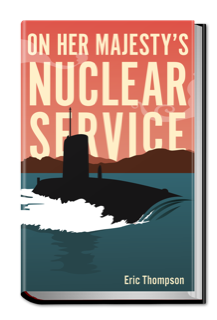Fancy That!
I received this message from Tom Bonnington, my publisher's Marketing Executive:
'Just checked Amazon and it’s now top 1000! I think (think!) that might be the first Casemate book to do that. You’re also the best selling book on ‘Socialism’ ahead of the likes of Noam Chomsky and Karl Marx.'
--------------
On Her Majesty's Nuclear Service celebrates the fact that I have lived through the second-half of the twentieth century and never known war. Had I lived through the first-half, I would have faced two world wars, the bloodiest in the history of the human race. But peace did not happen by accident. I (and you) have lived under a nuclear umbrella. Forty five years of my life were spent during the Cold War.
After the horrors of the Second World War, Churchill said: 'It must never happen again.' To ensure it did not, the victors equipped themselves with nuclear weapons, weapons so devastating that they were the ultimate deterrent to a third world war. The principle was called Mutually Assured Destruction (MAD).
Inspired by the heroes of the Second World War, I joined the Royal Navy in 1961, volunteered for submarines and served in Britain's strategic nuclear deterrent programme. My career spanned thirty-seven years and ended as Commodore in charge at Faslane, the operating base for our nuclear deterrent submarines. As a submariner, I was but one of thousands of men* engaged in this peacekeeping mission. (*There were no women in our submarines during the Cold War. There are now.) We were all anonymous, quietly doing our duty and far from the public eye. Heroes were not required but nor were we robots; we also had lives to lead.
'On Her Majesty's Nuclear Service' is a definitive inside story of a highly secret world. It is utterly authentic, on occasion amusing and, I hope, thought provoking. It is my statement of gratitude for the peace I have enjoyed.
Below is a fifteen minute video illustrating the background to the book.
Through my American publishers, I was interviewed live for an hour on US radio (click on link below). The interviewer, Donna Seebo, ran her own commercial radio station and I was on her book review programme, 'Warriors for Peace'. I liked the title. The questions were well informed and penetrating. Donna ended the programme by reading my poem, 'Peace be with them', written in honour of my fellow submariners. I had never heard it read before and was very moved by her reading - and by the power of my own verse (he said modestly). You can hear her reading it at the end of the link below. It is in the book but for convenience, here it is:
PEACE BE WITH THEM
In the bowels of the beast with a heart of steel
In Neptune’s black abyss,
Stand sixteen silent sentinels
On watch o'er Britain's peace
And through the black abyssal deep
Each day of every year,
The Reaper ploughs the ocean
And sows his seeds of fear.
In the bowels of the beast with a heart of steel
Where the nuclear cauldron boils,
A hundred brave submariners
Attend their awesome toils,
Whilst snug in quilted feather beds
Full fifty million sleep,
And spare no thought for those at sea
Nor pray their souls will keep.
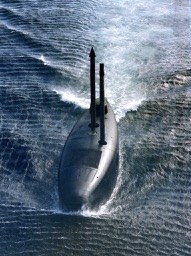
THE MOUNTBATTEN BEST BOOK AWARD
Out of the blue, Commander Rupert Best, a Cold War submarine Commanding Officer who had joined the Navy with me, nominated 'On Her Majesty's Nuclear Service' for the annual Mountbatten Best Book Award, a national competition with thirty-seven other titles on the short list. My book made it to the final four and I was duly invited to attend the Awards Dinner in the opulent Drapers' Hall in the City of London. It was like an Oscars ceremony.
The winner was 'The Wreck Hunter' by David Mearns (my face fell) but the very good news was that my book was voted runner up and I had to go on stage to receive the certificate below from the First Sea Lord.
There were two former First Sea Lords also in attendance, including Admiral of the Fleet, the Lord Boyce, who had not only joined the Navy with me but had also very kindly written the foreword to my book. (He was not involved either in the nomination or in the judging process). There were four others in the audience who had joined the Navy with me in 1961. That gave me huge satisfaction. Any one of us could have written a similar story. There was such a tangible sense of being 'all of one company'.
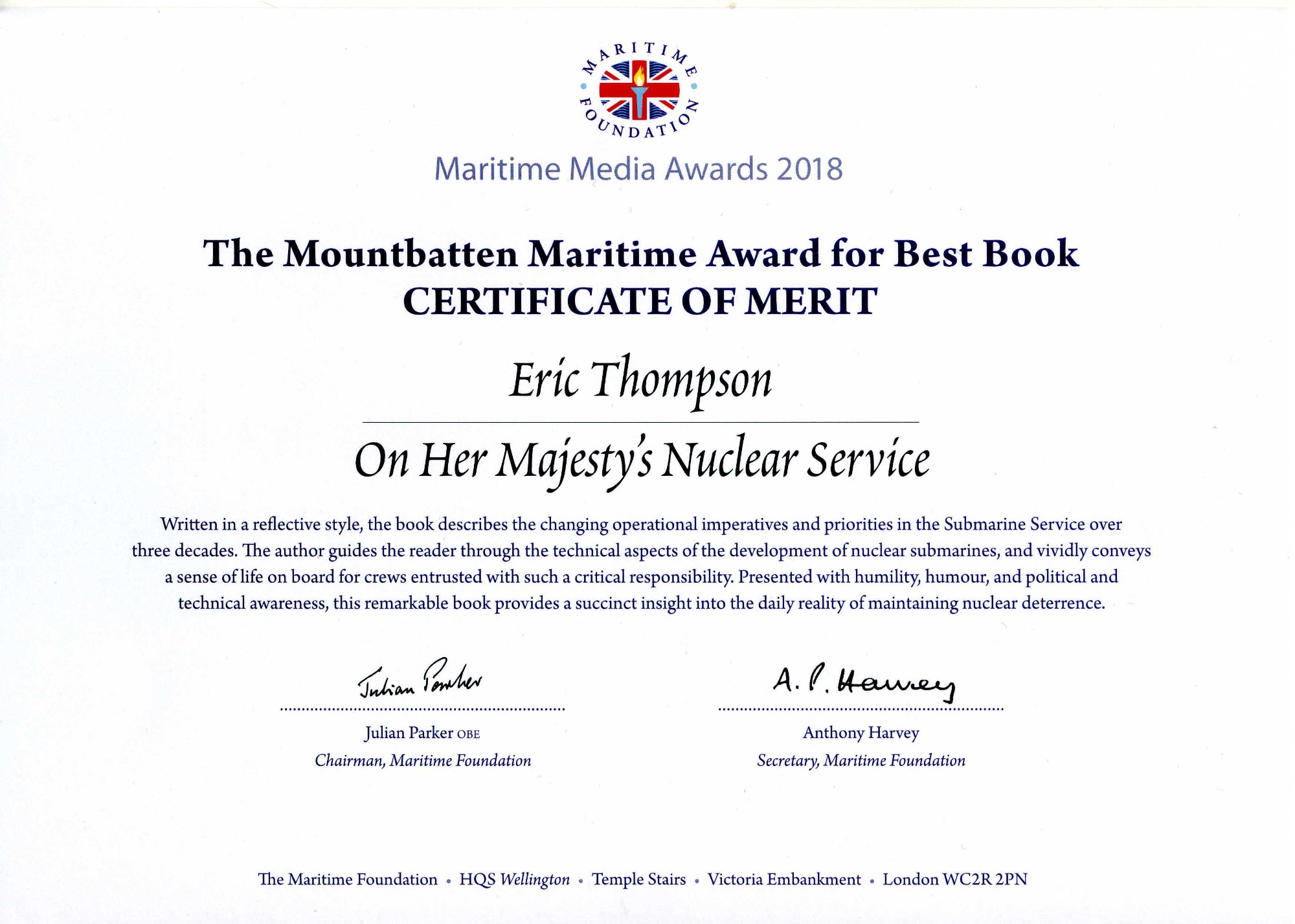
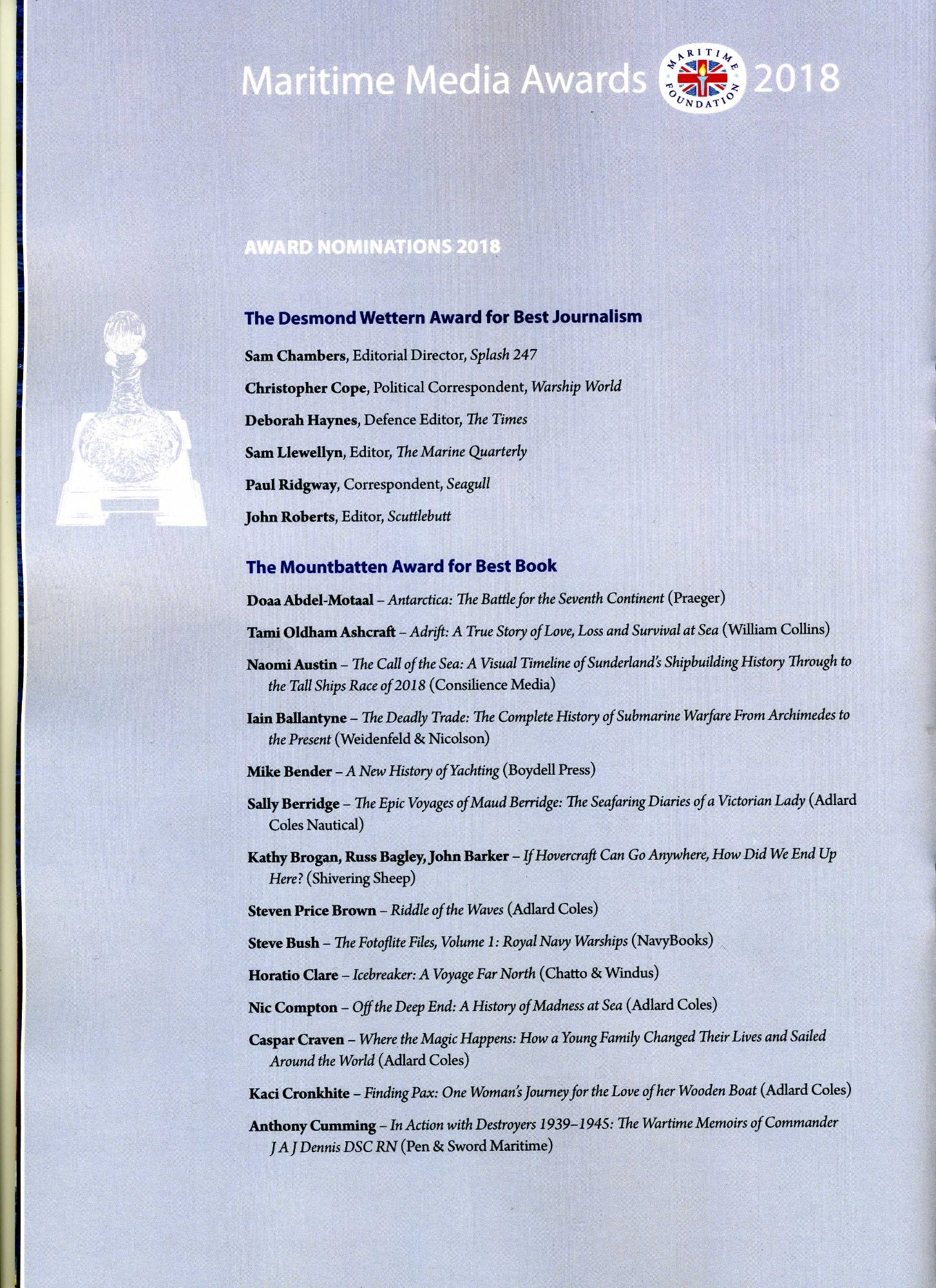
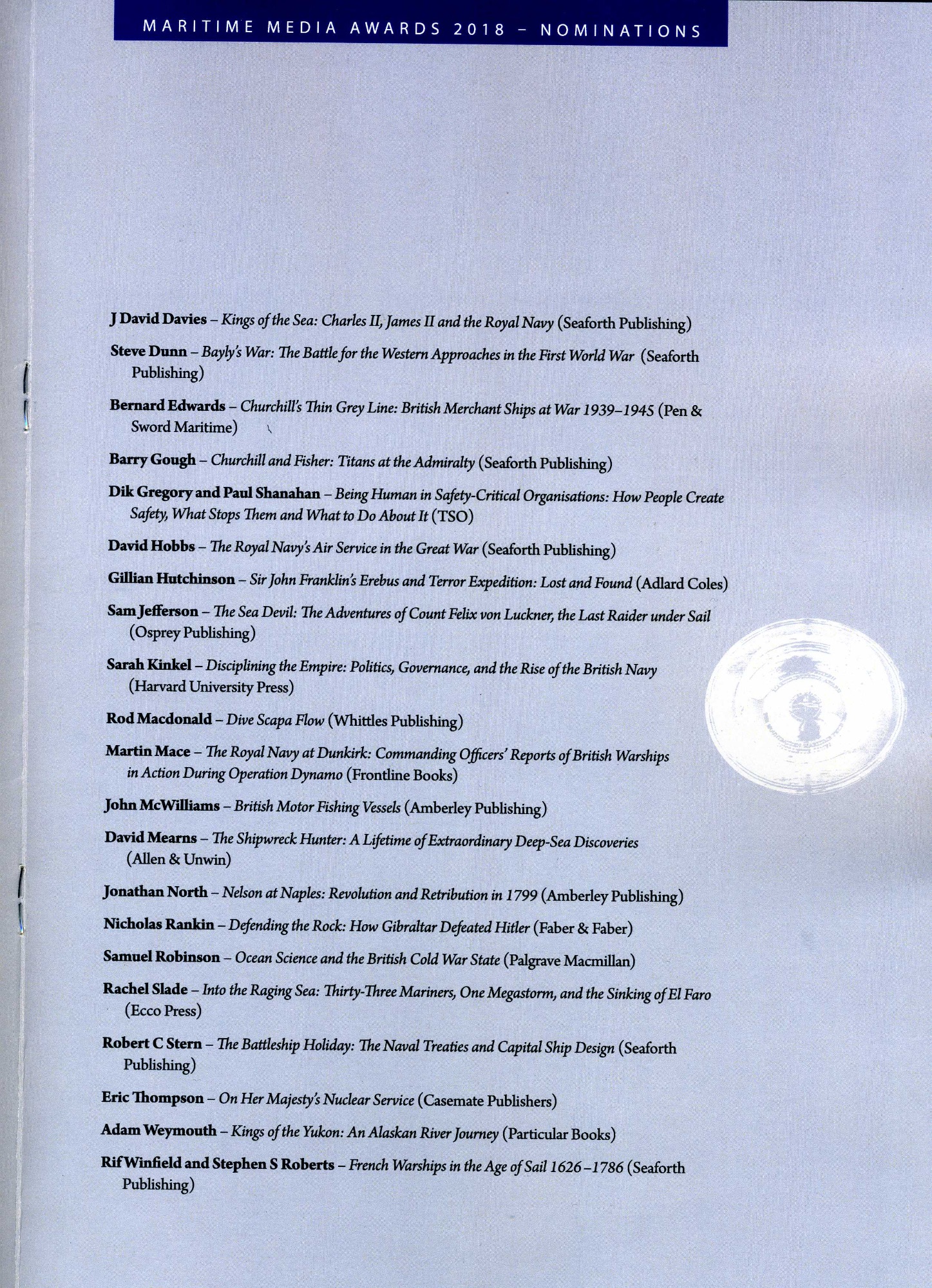
Sample Chapter
CHAPTER 1 - 'ON HER MAJESTY'S NUCLEAR SERVICE'
'Nobody knows where the submarine goes. And nobody gives a damn.' (Graffiti in a Fleet Tender)
June 1978 - HMS Revenge on patrol
The sudden roar came as a shock. It sounded like a jumbo jet taking off.
Steam leak in the TG room!' a voice shrieked over the intercom.
The roar said it all. This was serious.
Frank Hurley and I exchanged glances. 'Whot-da-fock!' he exclaimed.
We were in the tail end of a nuclear submarine, locked-in behind the massive steel doors of the reactor compartment. Our space was filling with steam. I was Senior Engineer and on watch. My moment of truth had come.
I pressed the general alarm three times - baaaa baaaa baaaa: 'Steam leak in the TG room,' I screamed over full main broadcast. There were one hundred and forty men for'ard, not least the Captain. They needed to know; this was a whole boat emergency. In the heat of the moment I forgot to cancel full main broadcast. The entire crew would now be entertained by my new soprano voice - strange how panic reacts on the testicles.
I knew the emergency drill by heart: Shut both Main Steam Stops. That would shut off all steam to the Engine Room. At a stroke, it would kill the leak. It was no more difficult than switching off the bedroom lights but it would also scram the reactor, the pumping heart of the submarine; the plant would automatically go into Emergency Cooling and there was no recovery from that at sea. We would have lost our power source, be reduced to a dead ship. We would have to surface and signal for a tug. Unthinkable. Revenge was a Polaris missile submarine on Strategic Nuclear Deterrent patrol. She was the country's duty guardian. We were the nation's assurance that World War Three would not happen, not on our watch. We were in our top-secret patrol position. Our number one priority was to remain undetected. Surfacing and calling for a tug would mean breaching one of the country's most highly guarded secrets - where we were. It would mean national humiliation. The credibility of our Nuclear Deterrent was at stake.
If I got it wrong now, the political ramifications would be incalculable. Jim Callaghan's Government was riven by anti-nuclear sentiment. Many of his Labour MPs were proud to flaunt CND badges in public, none more so than Michael Foot, the left wing leader-in-waiting; this could be their golden opportunity. If the Deterrent were seen to fail, British nuclear strategy would be holed below the waterline. Britain could lose its place in the UN Security Council. The Americans could end our Special Relationship. These lofty anxieties flashed through my mind as I prepared to be poached alive.
The Main Steam Stops were operated by push buttons behind my head. I hit the starboard button first. Then a split-second thought occurred. There was a fifty-fifty chance I'd got it right first time. 'Which side?' I yelled into the microphone.
'Starboard,' came a strangulated reply, the voice of Leading Mechanic 'Bungy Mack', a twenty-year-old Liverpudlian on watch below.
Thank God I had not hit the port button; we could survive on half power. But the roar had not stopped. Holy shit! The leak was on the boiler side of the stop valve! One massive, nuclear-powered steam generator was discharging its steam into my airspace and could not be stopped. We were in a race against time. The boiler had to be emptied before it killed us.
